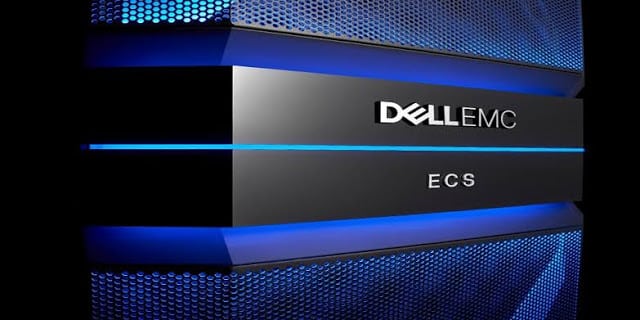Dell Technologies is introducing the EXF900, a new appliance to the Dell EMC ECS EX-Series lineup. Key features of this new all-flash appliance include high performance and flexible deployment. The company indicates that the object storage market is primed for a revolution based on object storage advantages, including scalability, flexibility, API-driven cloud-native architectures, and more. This new product is proposed to drive new opportunities and more significant business agility for Dell Technologies’ customers.
Dell Technologies is introducing the EXF900, a new appliance to the Dell EMC ECS EX-Series lineup. Key features of this new all-flash appliance include high performance and flexible deployment. The company indicates that the object storage market is primed for a revolution based on object storage advantages, including scalability, flexibility, API-driven cloud-native architectures, and more. This new product is proposed to drive new opportunities and more significant business agility for Dell Technologies’ customers.

Dell EMC ECS EX-Series is aimed to deliver scalable public cloud services with the reliability and control of private cloud infrastructures. This object storage solution provides comprehensive protocol support for unstructured (object and file) workloads on a single modern storage platform. Dell Technologies uses the ECS solution to allow customers to easily manage globally distributed storage infrastructure under a single global namespace with anywhere access to content. ECS features a flexible software-defined architecture that is layered to promote limitless scalability.
The new EXF900 appliance delivers extreme performance at scale for modern workloads. It is built with NVMe-based SSDs on Dell EMC PowerEdge servers delivering 21x performance improvements and 19x higher transactions per second (TPS), compared to Dell EMC’s capacity-optimized EX300 appliances, according to Dell Technologies. The system scales to modern workloads such as AI, machine learning, IoT, analytics, and cloud-native applications. It also embraces the NVMeOF protocol for its backend network, accelerating node-to-node communication and unlocking the true potential of the all-flash system’s throughput rate in large scale deployments.
Beyond higher performance and flexible deployments, new capabilities have also been added to the ECS software, including:
- Object cloning: This new feature enables high-speed object cloning, and fan-out writes by implementing a fan-out API specification. Essentially, ECS enables a single request to write or copy thousands of private copies on the backend, reducing client-side processing, server-side processing and network load. This capability is ideal for media and entertainment workloads such as Cloud DVR.
- Security admin role: This feature integrates with existing Active Directory/LDAP permissions, making for easy adoption and implementation.
- Security API: A new API to automate system security settings’ reporting makes it simple to integrate ECS with existing monitoring and data protection solutions for improved security across the board.
Engage with StorageReview
Newsletter | YouTube | Podcast iTunes/Spotify | Instagram | Twitter | Facebook | RSS Feed
